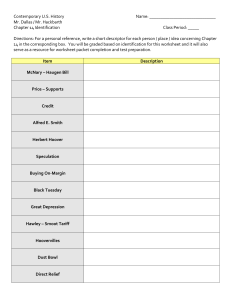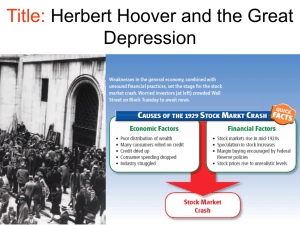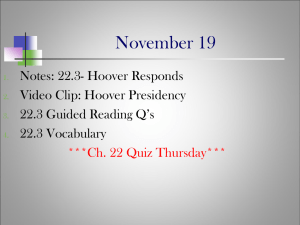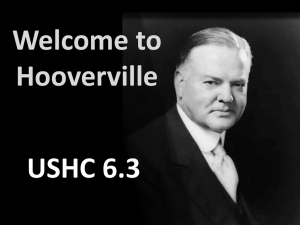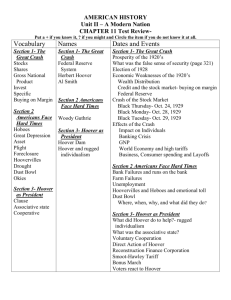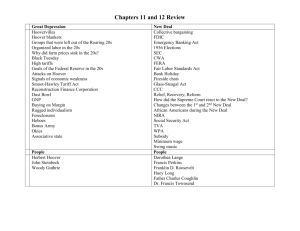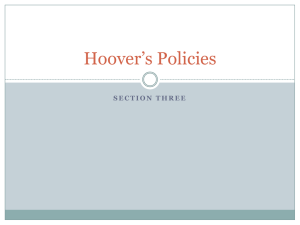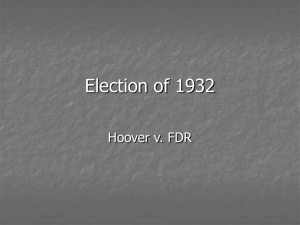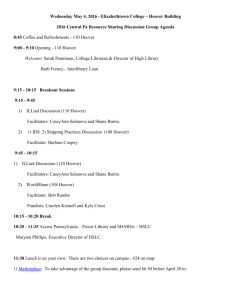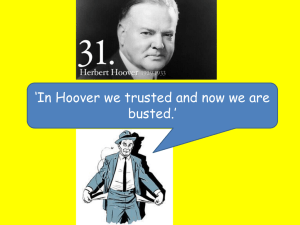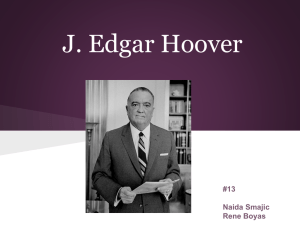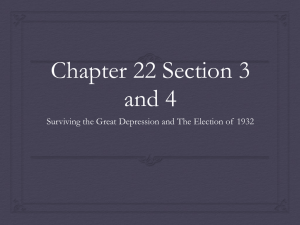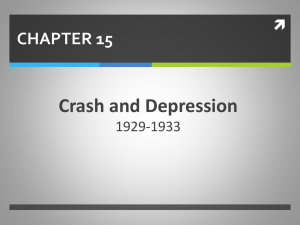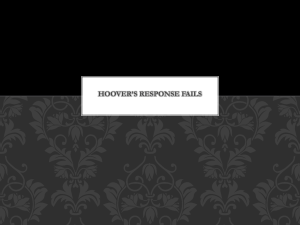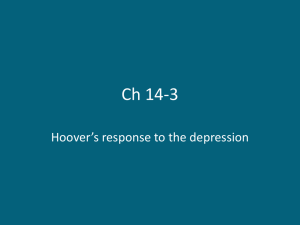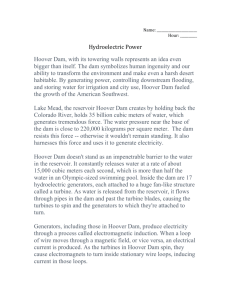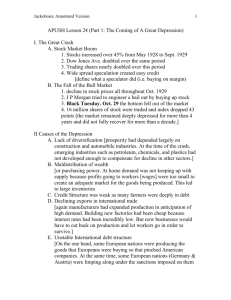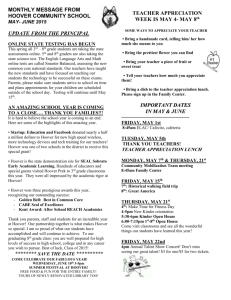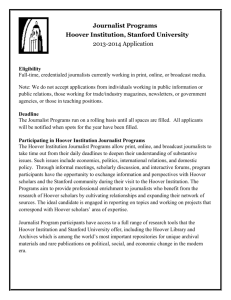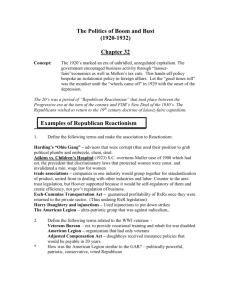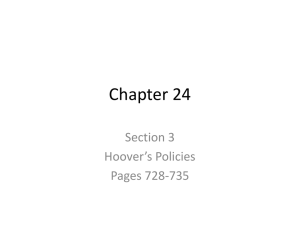Hoover and the Great Depression
advertisement
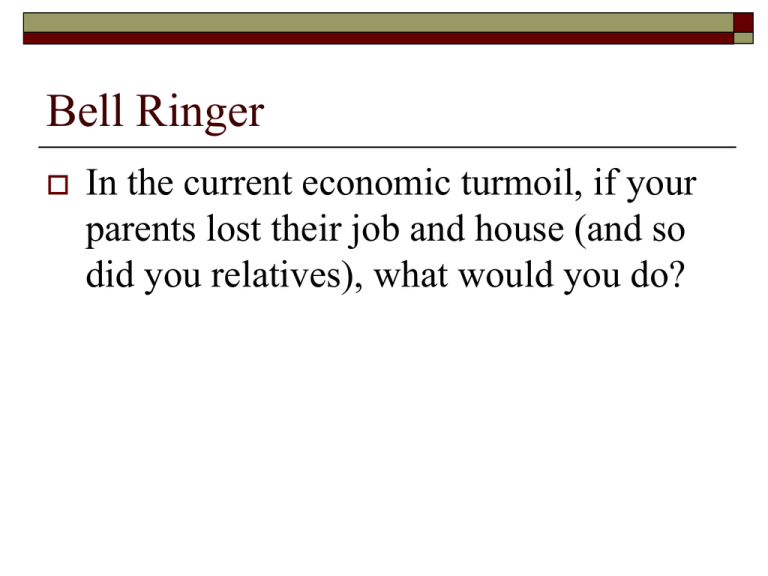
Bell Ringer In the current economic turmoil, if your parents lost their job and house (and so did you relatives), what would you do? Hoover on Prosperity “It has been twelve months of unprecedented advance, of wonderful prosperity. If there is any way of judging the future by the past, this new year will be one of felicitation and hopefulness.” -New York Times Editorial January 1, 1929 “People stood in long ques with satchels and paper bags to take gold currency away from the banks to store in mattresses and old shoe boxes. It seemed safer to put your life’s savings in the attic than to trust the greatest financial institutions in the country.” Gross National Product Nearly Halved The measure of the nation’s total output of goods and services Hoover and the Great Depression Villain or Scapegoat? Hoover to blame? •One out of every four men are jobless •Unemployment rises to 38% Unemployment Rate Skyrocket 13 Million Workers The measurement many people used to judge the wellness of the U.S. Economy Impact on People’s Lives Hardship Homelessness Hunger Thousands of people turned to soup kitchens and breadlines – lines of people waiting to receive food provided by charitable organizations and public agencies became a common sight Lines around every corner Hoovervilles “Hoovervilles” – Shantytowns – little towns that sprang up in cities and towns to house the homeless Hoovervilles continued… Farmers were hit with many hardships: Many had gone into debt to buy machinery and land, and low prices wiped out potential profits. Drought of 1931-1932 turned much of Midwest into a Dust Bowl While many Okies and fellow farmers migrated, most stayed put because at least they could still plant food for survival Americans head west Route 66 Ridin’ The Rails Some 300,000 transients, or “hoboes,” wandered the country 300,000 school children out of school Some famous people who rode the rails Novelist Louis L'Amour TV host Art Linkletter Oil billionaire H. L. Hunt Journalist Eric Sevareid Bonus Army Bonus Army – group of WWI veterans denied their pensions marched on Washington, D.C. Set up a tent city in D.C. Hoover overreacted and sent in the army who burned the veterans out (Led by Douglas MacArthur and Dwight D. Eisenhower) The Wrong Place at the Wrong Time Believed government’s role was to encourage and facilitate cooperation , not control it. Believed handouts like Direct Relief would weaken the “rugged individualism” of American’s self-respect and moral fiber. Individuals, charities and local organizations should pitch in – the federal government could direct relief efforts, but not through a huge government bureaucracy Trickle Down Economics and Rugged Individualism Andrew Mellon Weed out weak banks Repay War debts Reduce taxes – balance budget No Public relief Boulder Dam (Hoover Dam) Hoover obtained approval for constructing Boulder Dam (now Hoover Dam) Would supply water to the states of the Colorado River Basin Hawley-Smoot Tariff Against his own wishes Hoover signed this tax on over 20,000 imported goods Hoped it would protect our devastated farmers as he had promised to do Thousands of economics petitioned for Hoover to veto the bill b/c economy was on the recovery late in 1930 Other nations retaliated with their own high tariffs shutting down trade around the globe and closing markets when we most needed them
